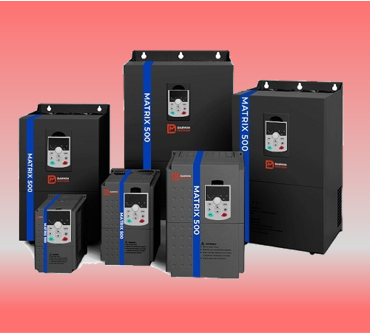Posted on 2nd Apr 2024

Darwin Motion Variable Frequency Drives (VFDs) are indeed a critical component in the advancement of smart manufacturing for several reasons:
Energy Efficiency: VFDs enable precise control of motor speed by adjusting the frequency and voltage of the power supplied to the motor. By matching the motor speed to the load requirements, VFDs reduce energy consumption significantly compared to traditional methods like throttling valves or dampers. This energy efficiency is crucial for sustainable manufacturing practices and cost savings.
Flexibility and Control: VFDs offer unparalleled flexibility and control over industrial processes. They allow for smooth acceleration and deceleration of motors, precise speed regulation, and the ability to tailor operations to specific production needs. This level of control is essential for optimizing manufacturing processes and adapting to changing production requirements quickly.
Remote Monitoring and Diagnostics: In smart manufacturing environments, VFDs can be integrated with IoT (Internet of Things) technologies for remote monitoring and diagnostics. This enables real-time monitoring of motor performance, predictive maintenance, and the identification of potential issues before they cause downtime. Remote access to VFDs also facilitates centralized control and optimization of multiple systems across different locations.
Integration with Industry 4.0 Technologies: VFDs play a key role in the implementation of Industry 4.0 initiatives, which aim to create interconnected, intelligent manufacturing systems. By connecting VFDs to sensors, PLCs (Programmable Logic Controllers), and other automation systems, manufacturers can achieve seamless data exchange, process optimization, and the automation of complex tasks. This integration enhances productivity, quality, and overall efficiency in manufacturing operations.
Cost-Effectiveness: While the initial investment in VFDs may be higher than traditional motor control methods, the long-term cost savings associated with energy efficiency, reduced maintenance, and optimized processes make them a cost-effective solution for smart manufacturing. Additionally, advancements in VFD technology have led to increased reliability, longer lifespan, and lower total cost of ownership over time.
Overall, VFDs are essential components of smart manufacturing systems due to their energy efficiency, flexibility, remote monitoring capabilities, integration with Industry 4.0 technologies, and cost-effectiveness. As VFD manufacturers manufacturing industries continue to evolve towards greater automation, connectivity, and sustainability, VFDs will undoubtedly play a crucial role in shaping the future of manufacturing.